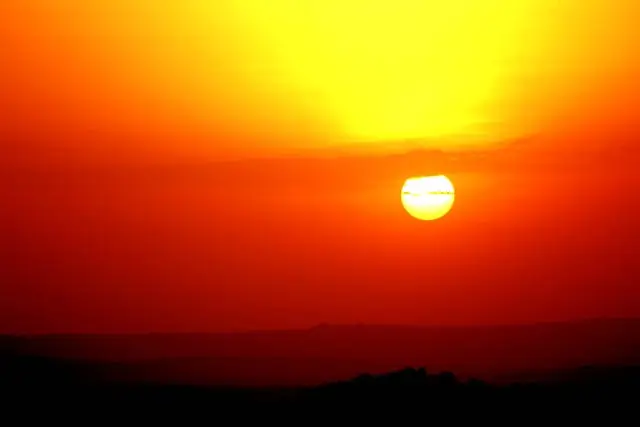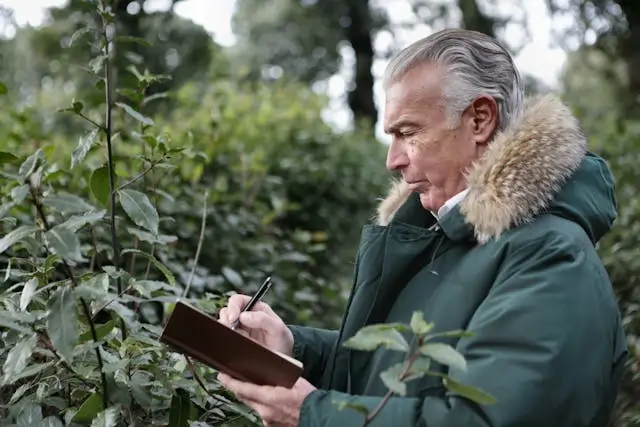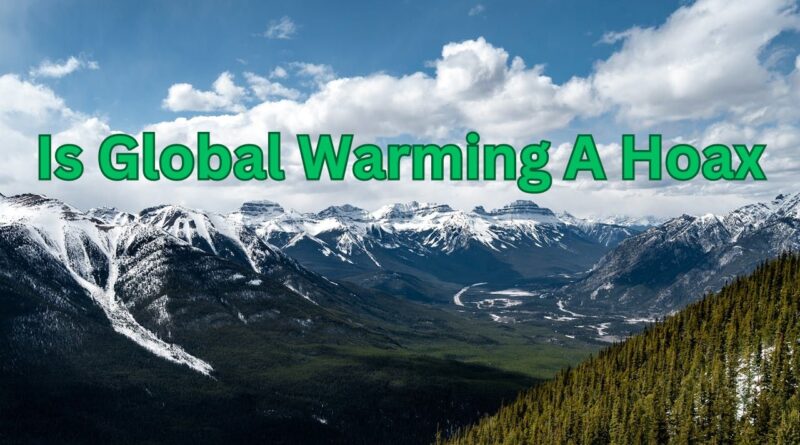Is Global Warming A Natural Cycle Or Hoax
The debate over global warming and climate change has been one of the most contentious scientific, political, and cultural discussions in recent decades. While the mainstream scientific community, particularly organizations like the Intergovernmental Panel on Climate Change (IPCC), asserts that human activity is driving unprecedented changes in the Earth’s climate, a significant number of scientists, researchers, and public figures argue against this narrative. They claim that the phenomenon of global warming is either exaggerated, misunderstood, or part of a natural cycle that humans have little to no control over. Some even suggest that the global warming narrative is a hoax, driven by political and financial interests rather than solid scientific evidence.
Is Global Warming A Natural Cycle Or Hoax? In this post, we’ll explore the various arguments presented by researchers who reject the idea of anthropogenic (human-caused) global warming, examining the evidence they put forward to support their claims. It’s important to note that while the majority of scientific institutions endorse the theory of human-caused climate change, these contrarian viewpoints hold weight in some scientific, political, and media circles.
Table of Contents
1. Historical Climate Cycles
One of the most frequently cited arguments against the idea of human-induced global warming is the fact that climate has always changed throughout Earth’s history. The Earth has undergone several periods of warming and cooling over thousands of years, without any human intervention. For example, the Medieval Warm Period (roughly 950 to 1250 AD) saw temperatures rise to levels that, according to some researchers, were comparable to or even higher than today’s temperatures. This period was followed by the Little Ice Age (approximately 1300 to 1850 AD), a time of cooler global temperatures.
Proponents of the idea that global warming is a natural phenomenon argue that the current warming trend is simply part of a similar natural cycle. They assert that the Earth’s climate system is far more complex than we currently understand, with various natural forces—such as volcanic activity, ocean currents, solar variability, and cosmic radiation—playing a significant role in influencing temperature trends. According to these critics, focusing solely on human-caused CO2 emissions as the primary driver of climate change is simplistic and ignores these other natural factors. They point out that the data shows it’s more political than science.
2. Solar Activity and It’s Influence

Is Global Warming A Natural Cycle Or Hoax? Many researchers skeptical of anthropogenic global warming highlight the role of solar activity in influencing the Earth’s climate. The sun, after all, is the primary source of energy for our planet, and fluctuations in solar radiation can have profound impacts on global temperatures.
Solar cycles, which last about 11 years, are characterized by varying levels of solar radiation, sunspot activity, and solar flares. Some scientists argue that changes in solar output have a more direct correlation with temperature changes on Earth than human-produced greenhouse gases. During periods of high solar activity, such as the early to mid-20th century, Earth’s temperatures tend to increase. Conversely, periods of low solar activity, such as the Maunder Minimum (1645-1715), coincided with cooler global temperatures, such as during the Little Ice Age.
Critics of the mainstream climate change narrative often point to studies that suggest we may be entering a period of reduced solar activity, which could counterbalance any warming effect from increased CO2 levels. They argue that current climate models fail to adequately account for these solar influences and thus overestimate the role of human activity in driving temperature increases.
3. Questioning Climate Models
Is Global Warming A Natural Cycle Or Hoax? Another major criticism raised by global warming skeptics revolves around the reliability of climate models. Climate models are mathematical representations of the Earth’s climate system used by some scientists to predict future temperature trends based on various factors, including greenhouse gas emissions. However, many other scientists and researchers argue that these models are inherently flawed because the climate system is too complex and chaotic to be accurately modeled.
Many models used by organizations like the IPCC have predicted more rapid warming than has actually occurred. For example, in the 1990s, some models projected dramatic temperature increases by the early 21st century, but actual observed temperatures have risen more slowly than predicted. Many researchers argue that this discrepancy between models and reality raises serious questions about the validity of future climate projections.
These researchers also point out that models often fail to account for feedback mechanisms in the climate system. For instance, increased cloud cover or changes in ocean circulation patterns could mitigate warming, but such factors are not fully understood or incorporated into many climate models.
4. The “Pause” in Global Warming
Is Global Warming A Natural Cycle Or Hoax? One of the most controversial topics in the climate debate is the so-called “pause” or “hiatus” in global warming. This refers to a period in the late 20th and early 21st centuries when global surface temperatures appeared to plateau, despite continued increases in greenhouse gas emissions. According to critics of the mainstream climate change narrative, this pause contradicts the idea that CO2 is the primary driver of global temperatures.
Several studies have suggested that the “pause” can be explained by natural variability in the climate system, such as shifts in ocean currents or volcanic activity that temporarily offset the warming effect of greenhouse gases. However, other researchers argue that the pause highlights fundamental weaknesses in the theory of anthropogenic global warming. If CO2 were truly the dominant force driving temperature changes, they argue, then we should have seen a more consistent rise in global temperatures over this period.

5. Misinterpreted Data and Adjustments
Is Global Warming A Natural Cycle Or Hoax? Another key argument made by climate change skeptics is that the data used to support global warming claims has been misinterpreted or manipulated. They argue that surface temperature records have been “adjusted” in ways that exaggerate the extent of warming. This includes altering historical temperature data to make the past seem cooler and the present warmer.
For example, critics often point to adjustments made to the temperature records maintained by NASA’s Goddard Institute for Space Studies (GISS) and the National Oceanic and Atmospheric Administration (NOAA). According to some researchers, these adjustments are often not transparent and disproportionately show a warming trend.
Moreover, skeptics contend that many temperature measurements are taken from urban areas, where the “urban heat island” effect can artificially inflate temperatures due to factors like asphalt and concrete, which retain heat. When rural temperature records are considered, they argue, the warming trend is less pronounced.
6. CO2 as a Beneficial Gas
Is Global Warming A Natural Cycle Or Hoax? A common argument among climate skeptics is that CO2 is not the dangerous pollutant it is often portrayed to be. In fact, they argue, CO2 is a natural and essential part of the Earth’s atmosphere, and its increase may have positive effects on the planet. CO2 is vital for photosynthesis, and higher levels of CO2 enhances plant growth and agricultural productivity. This is known as the “CO2 fertilization effect.”
Many researchers argue that we should focus less on reducing CO2 emissions and more on adapting to any changes that may occur. They contend that the potential benefits of increased CO2—such as improved crop yields and a greener planet—are often overlooked in favor of doomsday scenarios about rising temperatures and melting ice caps.
7. The Politics and Economics of Climate Change
Is Global Warming A Natural Cycle Or Hoax? Beyond the scientific debate, many skeptics argue that the global warming narrative is driven more by politics and economics than by solid scientific evidence. They suggest that there are powerful financial interests at play, particularly in the renewable energy industry, which stands to gain from policies aimed at reducing fossil fuel use. Governments and international organizations, according to this view, use climate change as a pretext for implementing new regulations, taxes, and controls over the economy.
Some skeptics go so far as to suggest that global warming is a “hoax” designed to justify these policies. They point out that climate change has become a multi-billion-dollar industry, with researchers, NGOs, and corporations receiving vast sums of money to promote the idea of anthropogenic climate change and develop “green” technologies. This creates an incentive, they argue, for exaggerating the severity of the climate crisis. Not to mention all the politicians in Congress that benefit from insider trading by pushing the global warming hoax.
Is Global Warming A Natural Cycle Or Hoax?
Conclusion
The global warming debate is far from settled, with a substantial number of researchers and public figures arguing that the threat of catastrophic climate change has been overstated. They point to historical climate cycles, solar variability, flawed models, and manipulated data as evidence that the current warming trend may be more natural than human-induced. While some researchers continue to emphasize the risks posed by rising CO2 levels, these dissenting voices remind us that science is always evolving, and that skepticism is a vital part of the scientific process.
Ultimately, the debate over global warming is as much about politics and economics as it is about science. As long as there are conflicting interests at play, the discussion will likely continue to be a polarizing issue. Whether global warming is a natural phenomenon or a man-made crisis, it’s clear that the topic will remain a central issue in public discourse for years to come. Until then we need to always remember to follow the money. It seems politicians and science are for sale to the highest bidder far too often.




